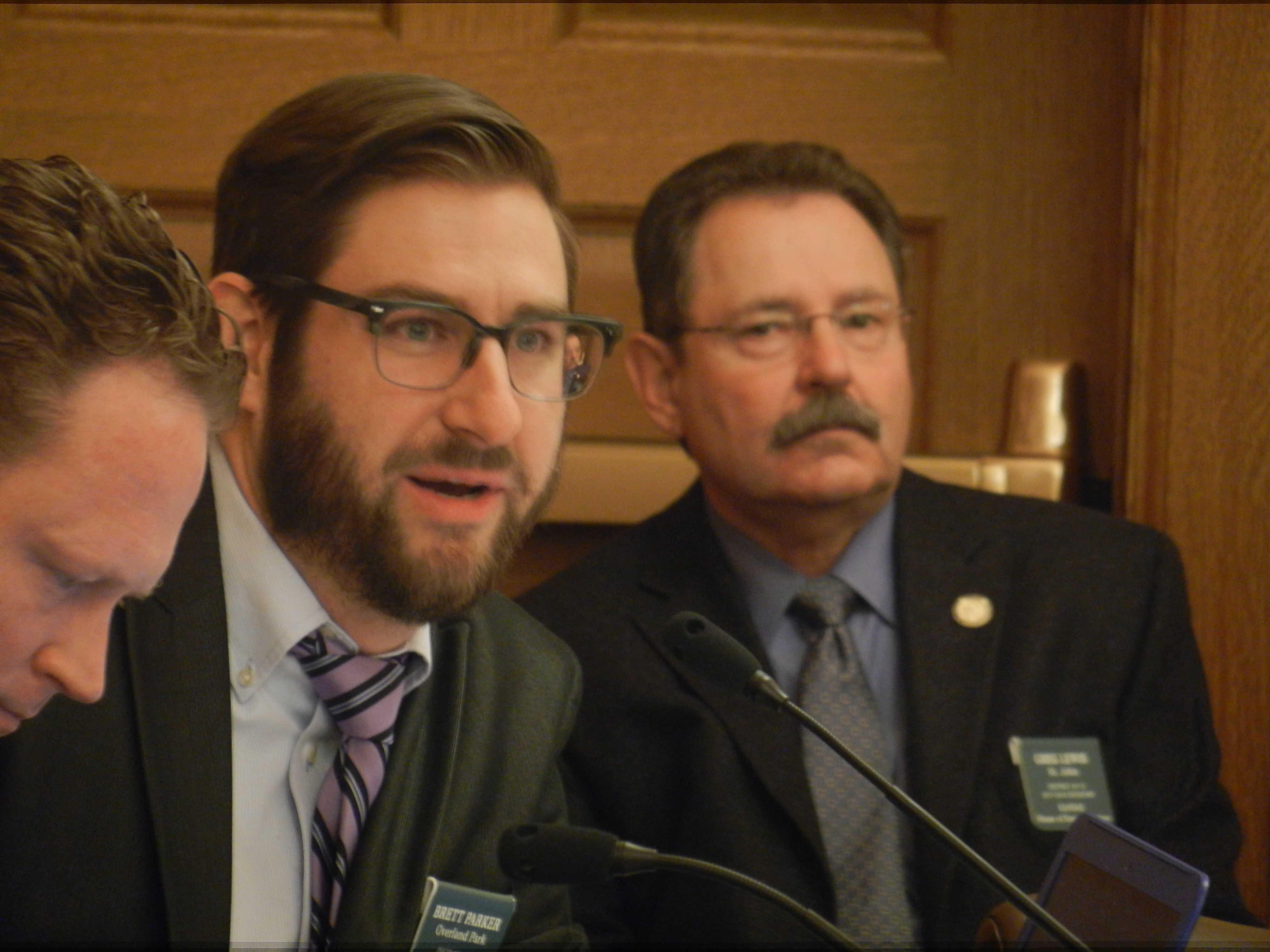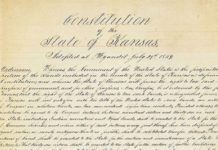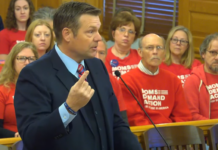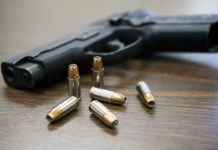The Kansas House gave preliminary approval to a $5 million plan for security upgrades at elementary and secondary schools across Kansas on Tuesday, a day marked by fierce debate over whether schoolteachers should be armed.
The bill requires the state Board of Education to develop standards for securing schools statewide in consultation with the Kansas Bureau of Investigation, the state health department, the state fire marshal and the adjutant general.
Backed by Republican House leadership, the bill would appropriate $5 million for security grants that would go to school districts statewide. Districts would have to match the state grants dollar for dollar.
While overwhelmingly supported, the amount of money allocated by the bill is seen as a pittance for helping school districts across the state.
“While this is a start, this can’t be the total answer,” said Democratic state Rep. Kathy Wolfe Moore of Kansas City, Kan.

The school security bill was decided following a committee meeting that heard vigorous debate over another piece of legislation that would make it easier for teachers to carry concealed weapons in schools.
Under the school security legislation, the state Board of Education would be required to adopt statewide standards for securing public schools, including building infrastructure, security technology such as cameras, and communications systems.
The standards, among other things, would cover procedures for securing and evacuating buildings during an emergency as well as training school employees on school safety and security policies.
It also would include conducting student drills on emergency situations and ensuring that buildings comply with the security standards adopted by the state board.
The bill also brings back a gun-safety education course that was scrapped earlier in the legislative session because it came up for debate so soon after the Florida high school shooting that killed 17 people.
The legislation requires the state Board of Education to draw up curriculum guidelines for gun-safety education that would include the National Rifle Association-crafted Eddie Eagle GunSafe program — or other evidence-based programs — for students from kindergarten to fifth grade.
Gun-safety classes for students in the sixth through eighth grades would be based on the Eddie Eagle program, hunter education classes offered by the Kansas wildlife department or any other evidence-based program. Students in grades nine through 12 could take classes based on the hunter education courses.
The debate over the school safety plan set off long debate over guns in schools and whether teachers and staff should be allow to carry concealed handguns.
The House voted down efforts to reverse a state law that gives local districts the authority to allow teachers and staff to carry concealed handguns.
The effort was led by Democratic state Rep. Brett Parker of Overland Park – a teacher – who spearheaded a campaign against another bill that would have made it easier for school

districts to allow teachers and staff to carry concealed handguns.
“This is a policy the state of Kansas should say we don’t want,” Parker said.
Others thought it should be an issue left up to local school boards to decide.
“We need to trust local boards and local officials to do what’s right,” said Republican state Rep. Clay Aurand, chair of the House Education Committee.
The chamber also voted down a proposal to put more money into school safety with a $1 tax on each firearm sold and 1 penny on each round of ammunition sold.
There were an estimated 175,000 guns sold in Kansas in 2017, according to a statement made during the floor debate.
The House passed the bill shortly after one of its committees heard testimony on a controversial bill that would have removed a major barrier blocking school districts from allowing teachers and staff to carry concealed handguns.

The House Insurance Committee took about two hours of testimony on a bill backed by Republican state Rep. Blake Carpenter that would require insurers to provide coverage despite reservations they might have about allowing school employees to carry guns.
Dozens of people — mostly opponents — packed a committee room Tuesday morning to testify on the legislation.
The fate of the bill was unclear immediately after the hearing since it was similar to the gun-safety bill passed by the House but included the gun/insurance provision.
Carpenter said he wanted to give school districts the power they already have under law to allow teachers and staff to carry concealed handguns but are effectively blocked by insurance companies that refuse to provide coverage.
“It is not if our kids will be killed but it is when will they be killed and what are we doing to prevent it,” Carpenter said.
Carpenter agreed to compromise on some parts of the bill, including one section that would make a school district vulnerable to litigation if it didn’t allow teachers to carry concealed handguns and a shooting occurred.
Advocates argued that allowing teachers to carry concealed weapons is not new. They said in testimony that 10 other states, including 172 districts in Texas, allow teachers and staffers to carry concealed handguns.
Opponents were not impressed.
“This bill is just a bad idea,” said Mark Desetti, lobbyist for the Kansas National Education Association. “Let’s turn our attention to protecting children and protecting American citizens from massacres, whether they in our schools, in our night clubs or anywhere else.
“We can stop them if we have the will to do it. Arming teachers is not the way to do it.”
Other opponents included the Shawnee Mission School District whose assistant superintendent for instructional support testified against the bill.
“We have trained police officers in our schools who know how to deal with potentially dangerous situations,” Rick Atha told the committee. “They are the only ones who should have access to lethal weapons.”
Republican Jene Vickrey, chairman of the House Insurance Committee, said he would “love” to work the bill if lawmakers can find amendments to smooth out the bill’s rough edges.
Vickrey said he would like to find what’s worked in other states and apply it to the legislation that was heard on Tuesday morning.
“We should have that discussion,” Vickrey said. “I don’t know if we can have it with just a few days of session left.”















